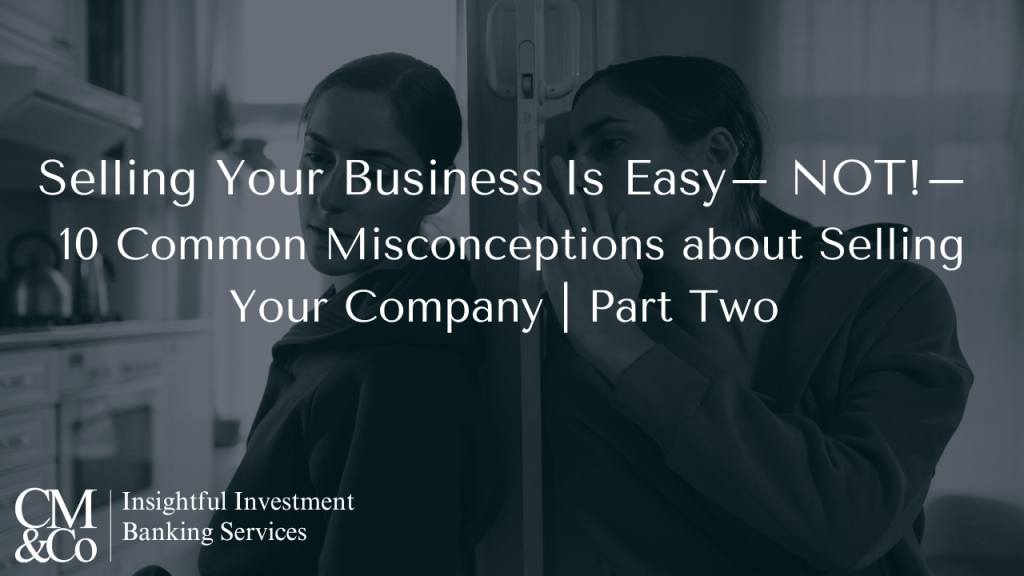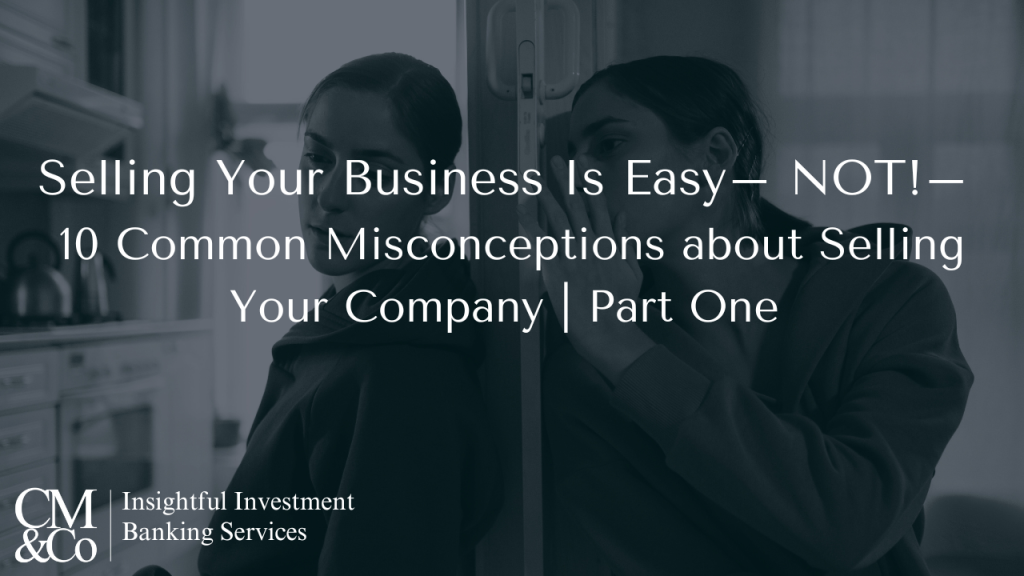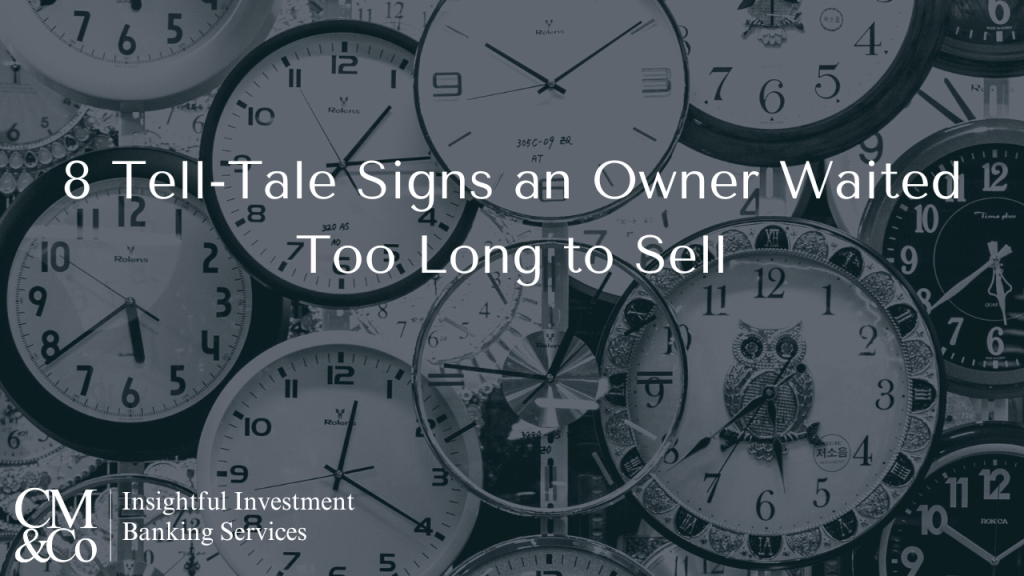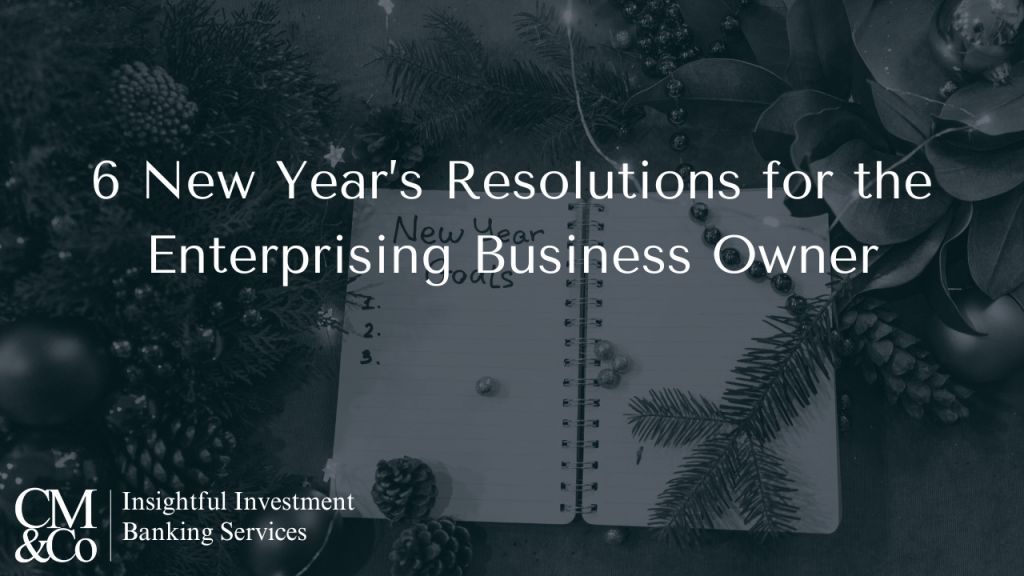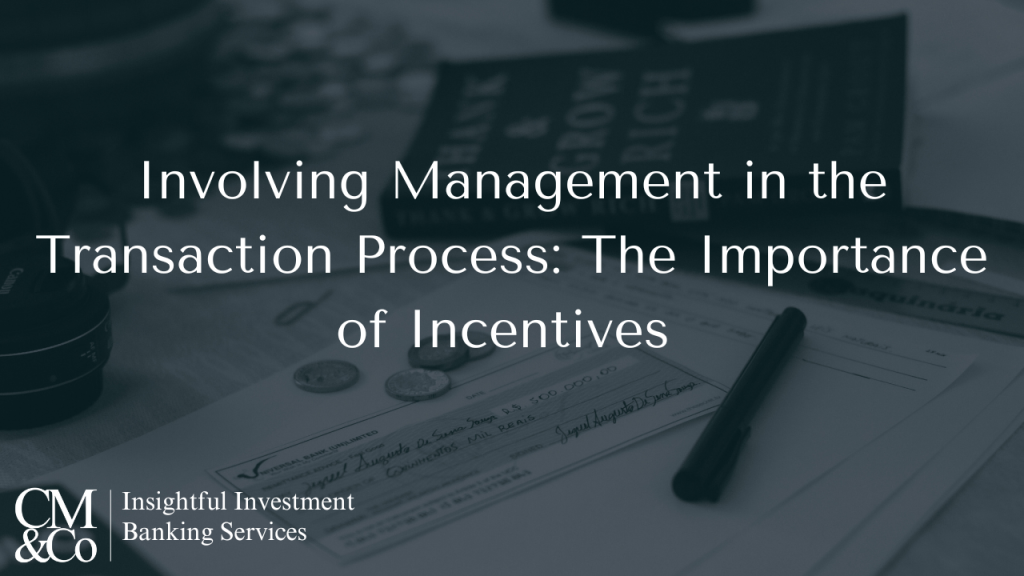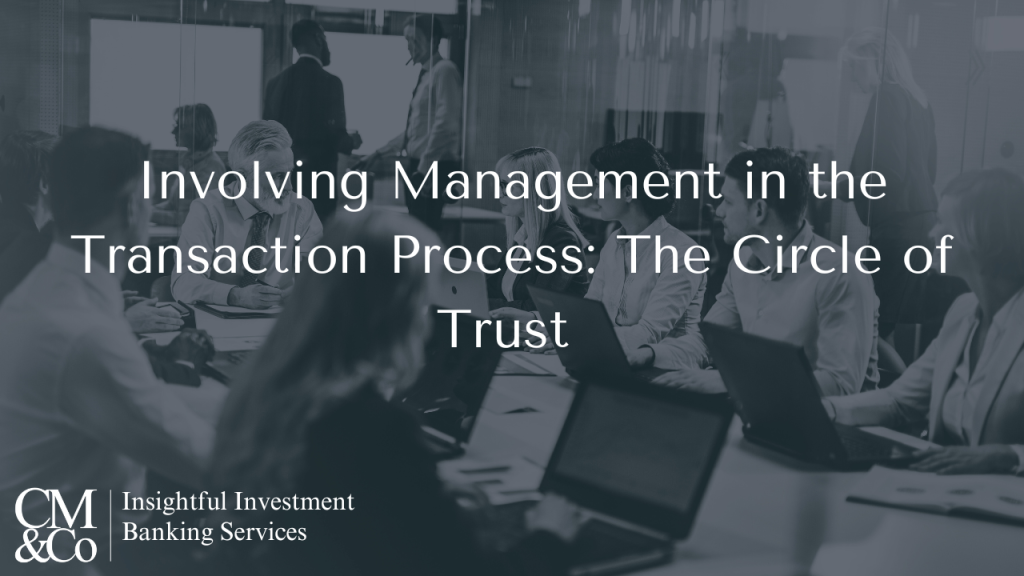The Business Exit
Selling Your Business is Easy—NOT! 10 Common Misconceptions about Selling Your Company | Part Two
Theodore Roosevelt said it best: “Nothing worth having comes easy.” Selling your company is, obviously, a worthwhile endeavor, but it is never an easy one. The sale of a business can be accompanied by tumultuous negotiations, stormy setbacks, and other potential pitfalls. And most owners, especially those who have never sold a company before, underestimate…
Read MoreSelling Your Business Is Easy – NOT! – 10 Common Misconceptions about Selling Your Company | Part One
Selling your company is easy, right? Wrong! Selling a business is a complex process with a lot of moving parts. If the owner has never sold a business before, they often have misconceptions about the level of time, effort, and attention it takes to sell their company and what they actually need to do to…
Read More8 Tell-Tale Signs an Owner Waited Too Long to Sell
In an ideal world, an owner would sell their company when the timing was “just right.” All the stars would align perfectly — it is a seller’s market; the value would be higher than the owner could ever imagine; the non-financial terms would favor the seller; the buyer would have the knowledge, motivation, and resources…
Read More6 New Year’s Resolutions for the Enterprising Business Owner
With the New Year upon us, everyone is making personal resolutions: to exercise more, to eat healthier, or perhaps to improve personal finances. While you are at it, why not consider making some New Year’s resolutions for running your company? Here are six ideas to help kick start your goal-setting for the year ahead: Resolution…
Read MoreTop 10 Mistakes Business Owners Make When Selling Their Company | Part Two
In this two-part series, we will highlight five more mistakes and how owners can avoid them. As mentioned last time, owners typically make these mistakes because selling their business involves different responsibilities than running their company. With some knowledge and expert guidance, however, owners can avoid making these mistakes and complete a successful transaction (with…
Read MoreTop 10 Mistakes Business Owners Make When Selling Their Company | Part One
Owners are great at running their business. When they are ready to sell their business though, owners are prone to common mistakes since selling their company is often new, uncharted territory, and certainly not what they do every day. These mistakes can be costly, waste both the owner’s and buyer’s time and money, and potentially…
Read MoreInvolving Management in the Transaction Process: The Importance of Incentives
When the owner contemplates selling their company, one of the important aspects is communicating the news to the management team. When should the owner tell them about the deal? Who should the owner bring into their confidence? How should they be incentivized to work with the owner to complete the transaction? It is a lot…
Read MoreInvolving Management in the Transaction Process: The Circle of Trust
Owners always ask the following question when considering the sale of their company: “When do I inform my employees?” It is an interesting conundrum. After all, the owner cannot complete the transaction without valuable input from their management team including the Chief Financial Officer or controller, sales and marketing executive, and the Chief Operating Officer. …
Read MoreHiring a Non-Family Manager, Part Two: Incentivizing a Successor
Succession planning in the context of transitioning day-to-day control of a company to a non-family President while retaining ownership of the company. Regardless of the reason that the owner is retiring, it is important that the operational successor has the vision and capability to lead the company during the next phase of its life cycle.…
Read MoreHiring a Non-Family Manager: It’s a Matter of Trust
There comes a time in every business owner’s life when it is time to make the tough decision regarding succession. The owner may be ready for retirement or need to stop working for personal reasons. While the sale of the company is one option, in this article, we will focus on the owner retaining the…
Read More
